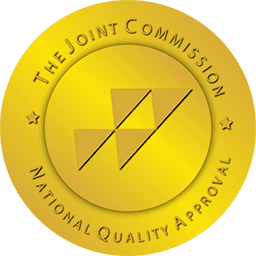- Home
- Treatment
Treatment Designed for You.
Get in touch with Absolute Awakenings today and begin your journey to long-term healing & recovery. - What We Treat
An Experience in Healing
Get in touch with Absolute Awakenings today and begin your journey to long-term healing & recovery. - About
The Rehab You've Been Looking For
Get in touch with Absolute Awakenings today and begin your journey to long-term healing & recovery. - Tour
- Resources
Don't Wait Another Day.
Get in touch with Absolute Awakenings today and begin your journey to long-term healing & recovery. - Admissions
The Rehab You've Been Looking For
Get in touch with Absolute Awakenings today and begin your journey to long-term healing & recovery. - Contact
(866) 627-0196
3000 NJ-10, Morris Plains, NJ 07950
admissions@absoluteawakenings.com
Schedule a Tour Now
Get in touch with Absolute Awakenings today and begin your journey to long-term healing & recovery.
Begin Your Journey Now
Begin Your Journey Now
- Home
- Treatment
Treatment Designed for You.
Get in touch with Absolute Awakenings today and begin your journey to long-term healing & recovery. - What We Treat
An Experience in Healing
Get in touch with Absolute Awakenings today and begin your journey to long-term healing & recovery. - About
The Rehab You've Been Looking For
Get in touch with Absolute Awakenings today and begin your journey to long-term healing & recovery. - Tour
- Resources
Don't Wait Another Day.
Get in touch with Absolute Awakenings today and begin your journey to long-term healing & recovery. - Admissions
The Rehab You've Been Looking For
Get in touch with Absolute Awakenings today and begin your journey to long-term healing & recovery. - Contact
(866) 627-0196
3000 NJ-10, Morris Plains, NJ 07950
admissions@absoluteawakenings.com
Schedule a Tour Now
Get in touch with Absolute Awakenings today and begin your journey to long-term healing & recovery.
Treatment at AATC
What to Expect
- Absolute Awakenings Treatment Center
- Admissions
- What to Expect
Keep reading to learn more about preparing to enter treatment at Absolute Awakenings.
what will rehab be like?
What to Expect When I Go to Treatment?
What to expect from addiction treatment will depend on what kind of program you are choosing to attend. The most common treatment plans are outpatient, partial hospitalization, and inpatient rehab programs. Inpatient programs are highly inflexible programs that require the individual to put their whole life on hold for the duration of their treatment. Inpatient programs are often called residential treatment programs since they require the individual to reside in the treatment facility for up to 90 days in some cases.
One of the most popular alternatives is a partial hospitalization program or PHP, sometimes simply called a “partial” program. They combine the intensity and commitment of an inpatient program, while still allowing the individual to maintain their own life. While they will still sleep in their own bed, they will commit to checking in for a full day of treatment programs and counseling sessions at the treatment facility, several times each week. Outpatient programs are similar but less intensive than partial hospitalization.
how to know if treatment is right for me?
When It's Time to Consider Rehab
If you or someone you know is suffering from a substance use disorder or is abusing alcohol but is unsure of when it’s right to seek help, the answer is generally simple. You should consider rehab if you begin to experience any withdrawal symptoms when not using your substance of choice. Spending a majority of time getting, using, or recovering from using is also an incredibly significant indication that there is an addiction present.
We Get to Know You
The first step in the treatment process involves a thorough assessment conducted by healthcare professionals. This comprehensive evaluation not only diagnoses the nature and extent of the addiction but also identifies any co-occurring mental health conditions, such as depression or anxiety, that need simultaneous treatment. The assessment informs the creation of a personalized treatment plan tailored to the individual’s specific needs.
Safely Detox
Undergoing detox and remaining clean is essential for recovery success. This is particularly important for those with co-occurring disorders since diagnosis otherwise is generally so difficult. Mental health is a big factor in successful detox and recovery.
Begin Healing
Following detox, the focus shifts to addressing the underlying reasons behind the individual’s substance use, teaching new coping mechanisms, and preparing for the return to daily life. This stage can occur in various settings, including inpatient (or residential) and outpatient programs, depending on the level of care required. Rehabilitation involves a combination of therapies, which may include:
- Individual Counseling, such as Cognitive Behavioral Therapy (CBT), which helps modify the patient’s thinking, behavior, and emotional responses associated with substance use.
- Group Therapy to enhance social reinforcement from peer discussion and promote drug-free lifestyles.
- Family Therapy because family support can be an integral part of recovery and maintenance.
- Medical Treatment for co-occurring conditions such as depression or PTSD.
- Education about addiction as a disease and how to manage it.
- Life Skills Training, including job training, as part of an effort toward social rehabilitation.
Lifelong Support
Recovery from addiction is a lifelong process, and maintaining sobriety requires ongoing support. Aftercare programs and relapse prevention planning are critical aspects of this stage. They often include continued therapy (individual or group), support group meetings (such as 12-step programs), and sometimes sober living environments. These services are designed to provide the individual with a support network, coping strategies, and resources to help manage the challenges of life without returning to substance use.
understanding outpatient
What's the Difference Between IOP & Outpatient?
Intensive outpatient treatment is a version of standard outpatient treatment that commits more time to the recovery journey. They will often require several visits to the facility each week, with each visit being several hours.
Outpatient and intensive outpatient programs often differ only in the level of commitment and time that is required to participate. Where an outpatient program may only need 4-8 hours per week of facility programs and counseling, an intensive outpatient program may require 15+ hours each week, depending on the individual.
Answers to Common Questions About Rehab
FAQs About Entering Rehab
The short answer is that there really is no “cure” for addiction. Those on a recovery journey from alcoholism or drug use may feel temptations from time to time. An effective recovery center, however, will be able to teach successful coping mechanisms for those triggering times.
After treatment with a treatment center like Absolute Awakenings, many people in recovery will create their continuation of care by attending support groups as well as individual counseling sessions or similar therapy.
While each treatment plan is tailored to the individual, a partial hospitalization program will often last two to four weeks. Following a partial care program, many patients choose to “step down” to an intensive outpatient program.
Stories of Hope & Healing
Hear from Our Alumni
A jewel among many local drug and alcohol rehab treatment centers in Denville, New Jersey, the care and treatment options you’ll receive at Absolute Awakenings is second to none. From not knowing if you’ll ever feel in control again to being confident in the path you’re on, we are invested in YOU every step of the way.
Find Your Path to Healing
Long-Term Recovery is Waiting...
If you have completed detox treatment and want to continue some level of treatment while you transition out of a residential program, working with a partial hospitalization program or even an intensive outpatient program might be ideal. The admissions specialists at Absolute Awakenings can help get that transition started.
© Copyright 2024. All Rights Reserved. AATC.
- Terms & Conditions
- Privacy Policy



